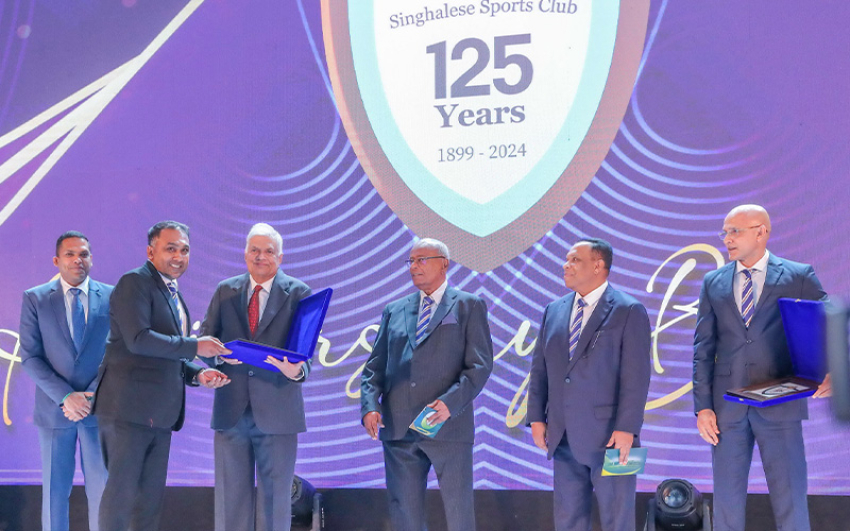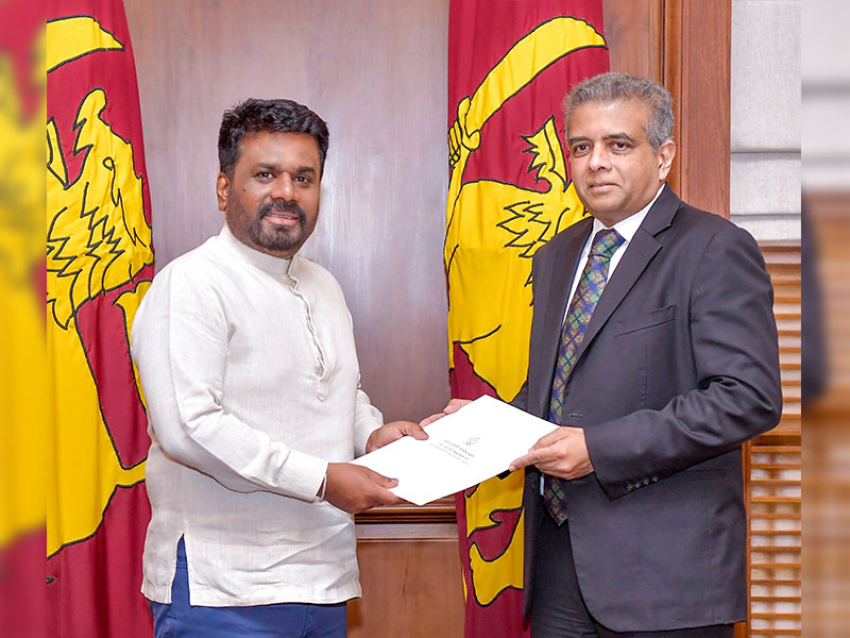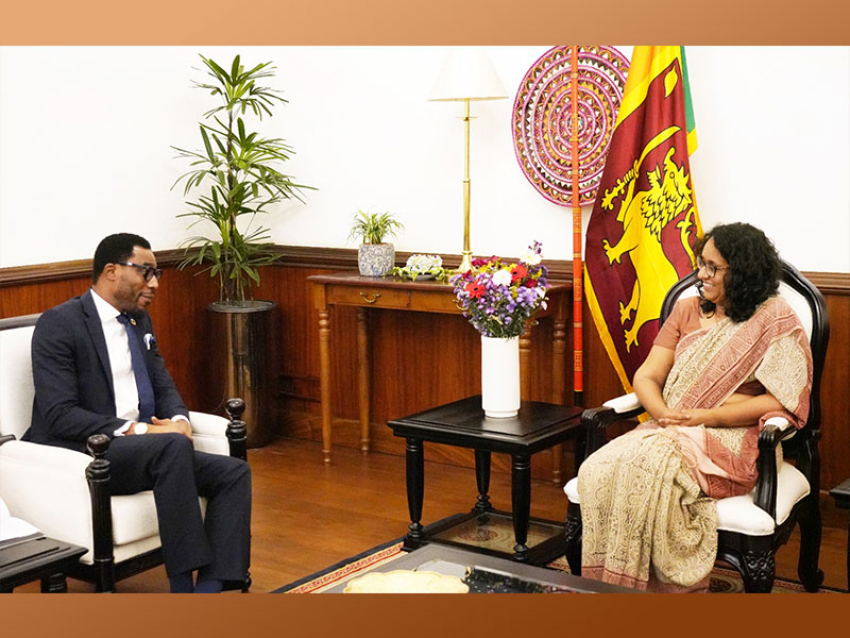Speaking at the 125th anniversary celebration of the Sinhalese Sports Club (SSC) at the Shangri-La Hotel Colombo yesterday (28), the President emphasized the importance of maintaining a separation between politics and sports. He suggested that preventing politicians from assuming high positions in sports clubs could contribute to a healthier sporting environment.
During the celebration, a commemorative book documenting the 125-year history of the Sinhalese Sports Club was unveiled, accompanied by the release of a postage stamp and a first-day cover.
President Ranil Wickremesinghe took the opportunity to commend SSC players who had represented Sri Lanka in international cricket, expressing appreciation for their contributions. The President also joined in a group photograph with the players, symbolizing unity and camaraderie within the sporting community.
Addressing the gathering, President Ranil Wickremesinghe underscored the enduring bonds between esteemed educational institutions such as Royal, St. Thomas’, Wesley and the Sinhalese Sports Club. He noted that individuals who have pursued cricket from these schools have established a shared identity with the Sinhalese Sports Club.
Drawing from personal history, President Wickremesinghe shared anecdotes about his own family’s association with the club. He mentioned his great-grandfather Meedeniya Adigar and grandfather C.L. Wickremesinghe, both of whom had joined the SSC as a means to embrace and promote a unified Sri Lankan identity. Following their footsteps, President Wickremesinghe revealed that his father had also become a member of the club after the country gained independence.
The President reflected on the historical context of the formation of sports clubs during a bygone era, highlighting their significance in fostering a sense of collective identity among different ethnic communities in Sri Lanka. He noted that clubs such as the Tamil Union and those established by the Malays served as platforms for various groups to assert their cultural and linguistic identity, rather than being rooted in ethnic strife or competition.
Emphasizing the inclusive nature of these clubs, President Ranil Wickremesinghe remarked that they were not defined by religious or caste divisions, but rather by shared language and culture. He underscored how these clubs facilitated the coming together of Sinhalese, Tamils and Malays, ultimately contributing to the development of a common national identity.
President Wickremesinghe also acknowledged the esteemed leaders of his party who had served as presidents of the Sinhalese Sports Club, including former Prime Minister D.S. Senanayake and former President J.R. Jayewardene. He expressed gratitude for their contributions and the honour it bestowed upon the party. While he himself had been a member of the sports club, the President revealed that he had chosen to step back from active involvement as a politician, recognizing the evolving nature of contemporary politics compared to the eras of Mr. D. S. Senanayake and Mr. J.R. Jayewardene.
President Wickremesinghe articulated his belief in the importance of maintaining a clear distinction between politics and sports, advocating for the exclusion of politicians from high-ranking positions within sports clubs. He emphasized the necessity of preserving the integrity and independence of sports from political influence, recognizing that this separation would contribute to a healthier sporting environment.
However, the President clarified that this stance did not signify a disengagement from sports. On the contrary, he assured the audience of his continued commitment to supporting sports initiatives and meeting the needs of athletes and sports enthusiasts.
Acknowledging the significance of upholding the traditions established by past leaders, he underscored the importance of nurturing and advancing sporting activities in the country. To demonstrate his commitment to fostering sports development, President Ranil Wickremesinghe revealed that he has instructed the Minister of Sports to present a Memorandum to the Cabinet, with a proposal to provide the land belonging to the Sinhala Sports Club on a 99-year lease basis, thereby ensuring the continuity and sustainability of the club’s operations and activities.
President Wickremesinghe underscored the importance of advancing Sri Lankan cricket, expressing his ambition to witness the nation reclaim its championship status in the sport. He highlighted that the government has earmarked Rs. One billion for cricket development this year, with plans for additional funding in the following year. This substantial investment will be managed by a trust overseen by Mr. Sidath Wettamuni, a distinguished cricketer and a member of the SSC. The funds will be utilized to enhance cricket programs in rural schools, organize cricket matches and foster the growth of cricket at the grassroots level.
The President emphasized the importance of expanding cricket programs in 1000-1500 schools, aiming to cultivate a vast talent pool from which the national team can be selected. Additionally, concerted efforts have been made to elevate the standard of cricket across the country. In this regard, both the Cricket Board and sports clubs play a pivotal role. Furthermore, the President expressed gratitude to the Sinhala Sports Club for its significant contribution to cricket in Sri Lanka, urging collective action to propel the nation towards global leadership in the sport.
Professor Maithree Wickramasinghe, Minister of Tourism, Lands, Sports and Youth Affairs Harin Fernando, along with notable figures such as Chairman of Sri Lanka Cricket Association Shammi Silva, Chairman of Sinhalese Sports Club Indunil De Silva, Secretary Wasantha Wijesekera, Treasurer Nilanka Peiris and members of the executive committee of the Sinhalese Sports Club graced the occasion. The event also saw the presence of former presidents, distinguished past and present cricketers, including former captain of the England cricket team Nasser Hussain and ICC referee Ranjan Madugalle, among other esteemed guests.




















